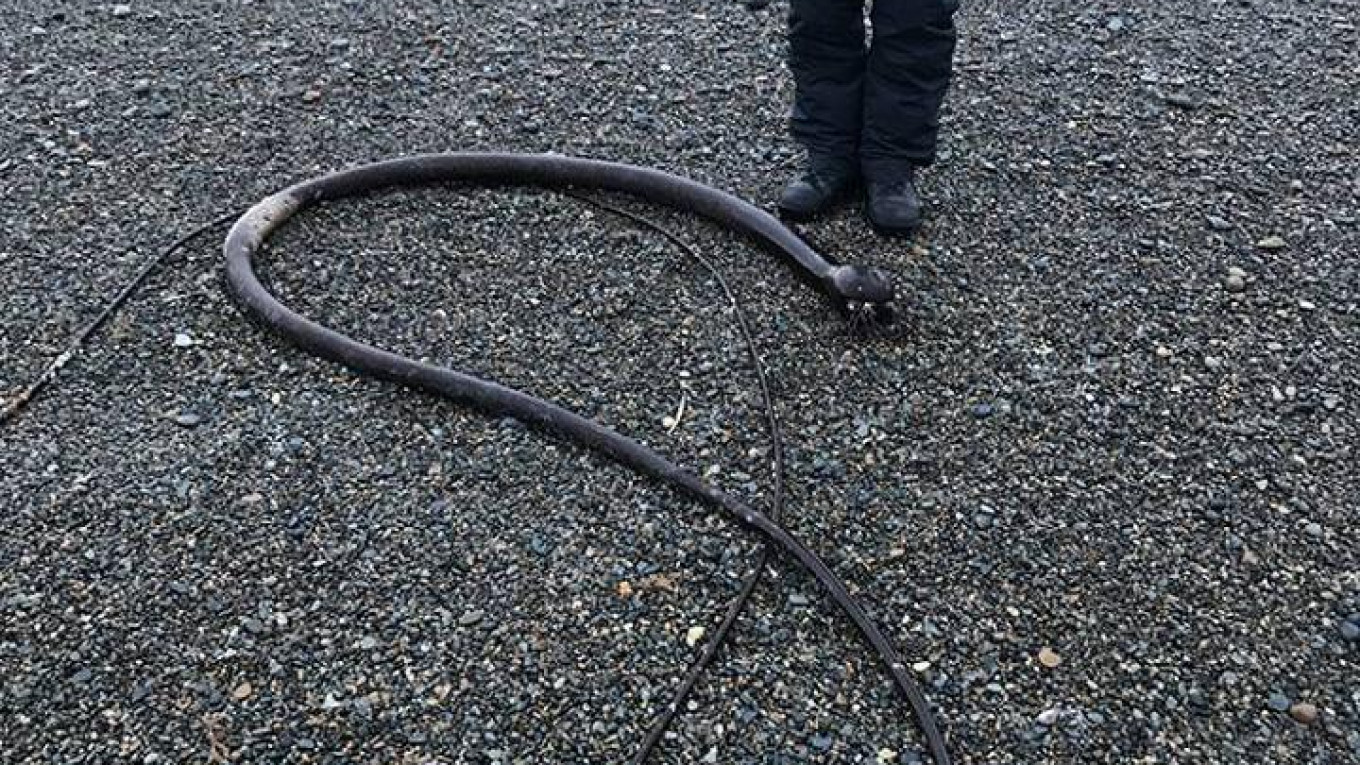Villagers on Russia’s Far Eastern coast discovered strange objects resembling giant snakes that washed up on the shores of the Bering Sea this week.
“Some thought that they were animal organisms, perhaps large worms” the national park of Beringia reported. “Others suggested that they were of anthropogenic origin. Still others were sure that they were a type of mutant.”
The answer turned out to be less mysterious. The park reported that the creatures were Nereocystis luetkeana — or kelp, which generally makes it to the Bering Sea via North America.
State television channel Rossiya 24 investigated the mystery, noting that the “giant sea snakes swum over from the United States.” The news outlet concluded that the algae actually contained vitamins that were good for the skin.
“They are totally harmless and even healthy,” a reporter said.
A Message from The Moscow Times:
Dear readers,
We are facing unprecedented challenges. Russia's Prosecutor General's Office has designated The Moscow Times as an "undesirable" organization, criminalizing our work and putting our staff at risk of prosecution. This follows our earlier unjust labeling as a "foreign agent."
These actions are direct attempts to silence independent journalism in Russia. The authorities claim our work "discredits the decisions of the Russian leadership." We see things differently: we strive to provide accurate, unbiased reporting on Russia.
We, the journalists of The Moscow Times, refuse to be silenced. But to continue our work, we need your help.
Your support, no matter how small, makes a world of difference. If you can, please support us monthly starting from just $2. It's quick to set up, and every contribution makes a significant impact.
By supporting The Moscow Times, you're defending open, independent journalism in the face of repression. Thank you for standing with us.
Remind me later.






